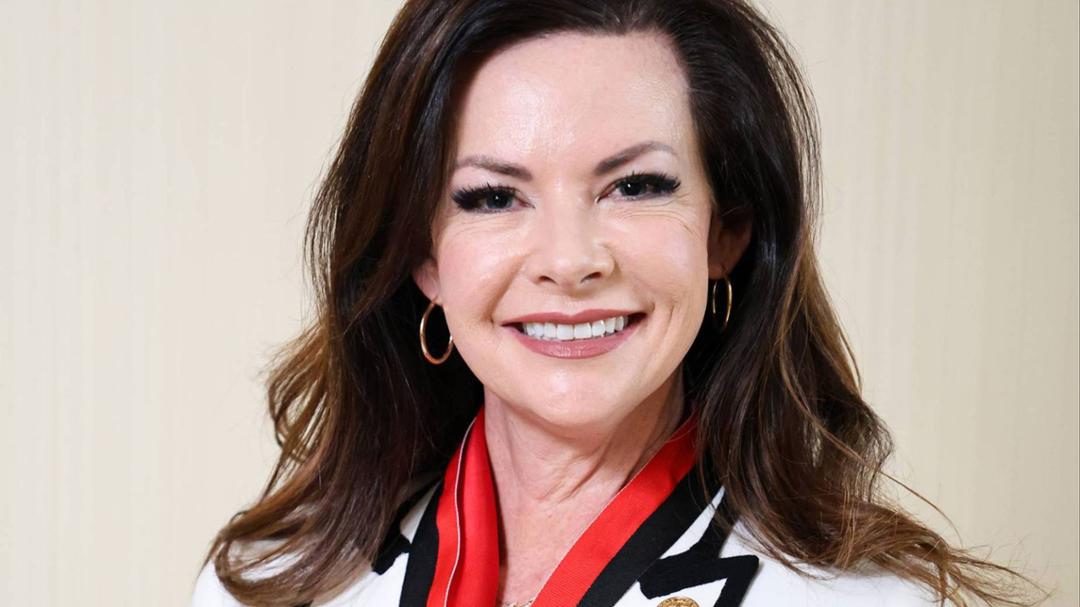Charlyn Plunk’s father was her role model for her 25-plus year career in engineering, and she wants to provide that foundation for other women and children.
Charlyn Plunk is her father’s favorite daughter.
There are many reasons, but Charles Gleeson says a main one is her tenacity, like winning the science fair and playing football against the boys.
A second on the list is the love she exudes, which drew the “rig dogs” to greet her when she joined him at work in the oil fields.
A third reason is perhaps the most important of all – she’s an only child.
“But we don’t have to tell everybody that,” Plunk laughed.
Plunk and Gleeson share not only a special father-daughter relationship, but a common interest in math and science. This inspired Gleeson’s career in petroleum engineering far before Plunk was born.
“When my dad told his grandfather, who was a farmer, what he was going to college for, he said, ‘Oh, I’ve always wanted to drive a train,’” Plunk recalled. “He thought that’s the only thing an engineer did.”
Nevertheless, Gleeson forged the path ahead – eventually earning a master’s in civil engineering with a minor in petroleum engineering from Texas Tech University in 1966.
Once he and his wife welcomed their daughter several years later, his focus split from his career in the oil and gas business into part-time mentor.
“She was a busy, inquisitive child who was always on the go and inquiring,” Gleeson remembered. “She’s always been a goer and a doer who could make things happen from a very early age.”
Rooted in Engineering
Plunk recognizes she had the advantage of a father who shared his expertise with her, especially at a time when science, technology, engineering and mathematics (STEM) programming was practically nonexistent.
She admits she would have had no idea what an engineer’s duties entailed without tagging along as her father worked on drilling rigs. This knowledge only increased when he began to take her to the Southwestern Petroleum Short Course on the Texas Tech campus when she was in high school.
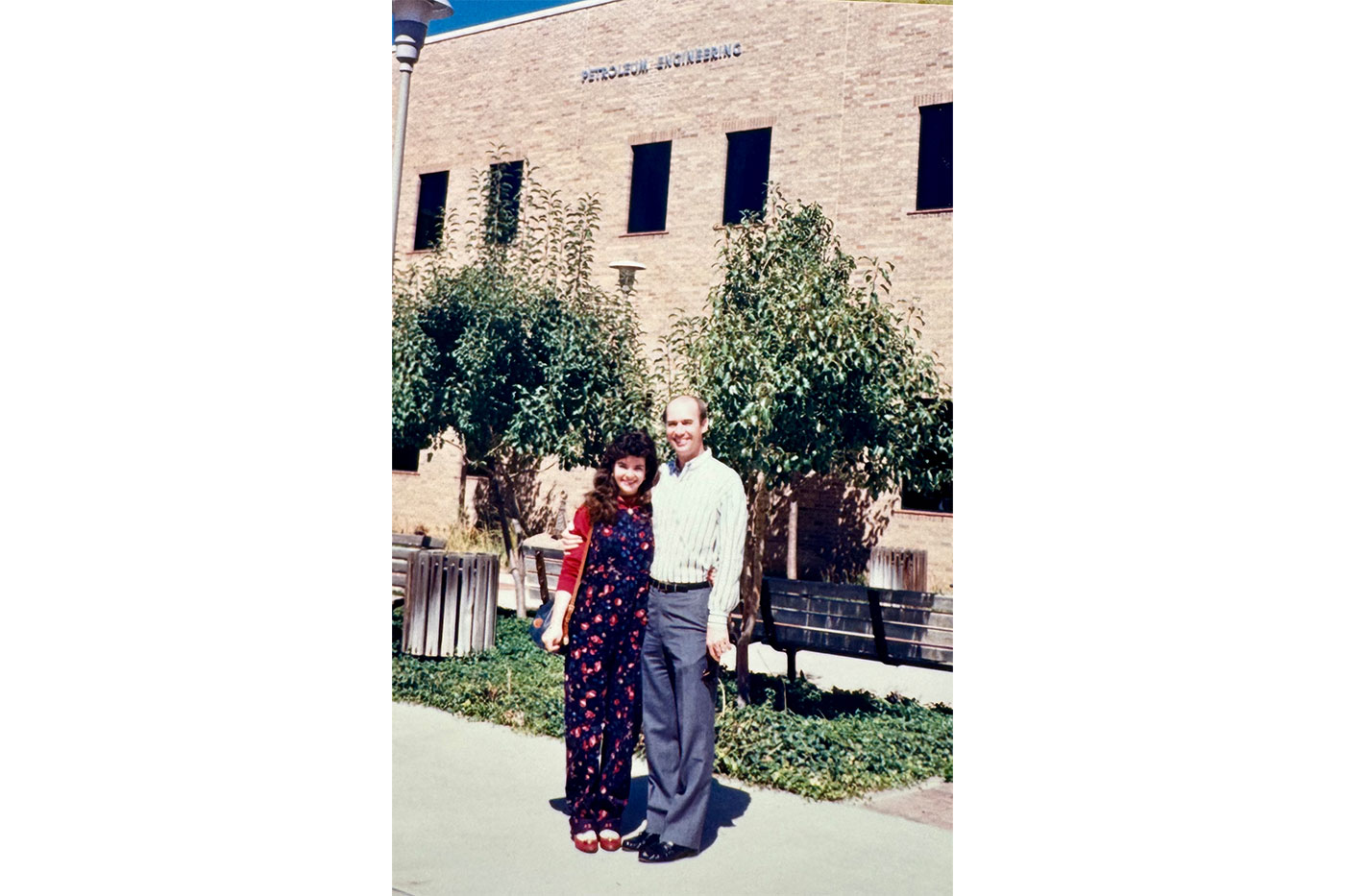
Those visits influenced Plunk to become a Red Raider, following in her father’s footsteps.
“I visited the Texas Tech campus probably 20 times before I even decided to attend college there,” she said. “I knew that’s where I needed to be.”
Plunk became a petroleum engineering major in 1988 along with only nine other incoming first-year students. She was one of three women who were not deterred by the bust in the oil business or their gender – forming the largest class of women at the time in what is now the Edward E. Whitacre Jr. College of Engineering.
Plunk became active right away, working her way up the Society of Petroleum Engineers student chapter until she became president her senior year. It was through this organization she met her husband, Jake.
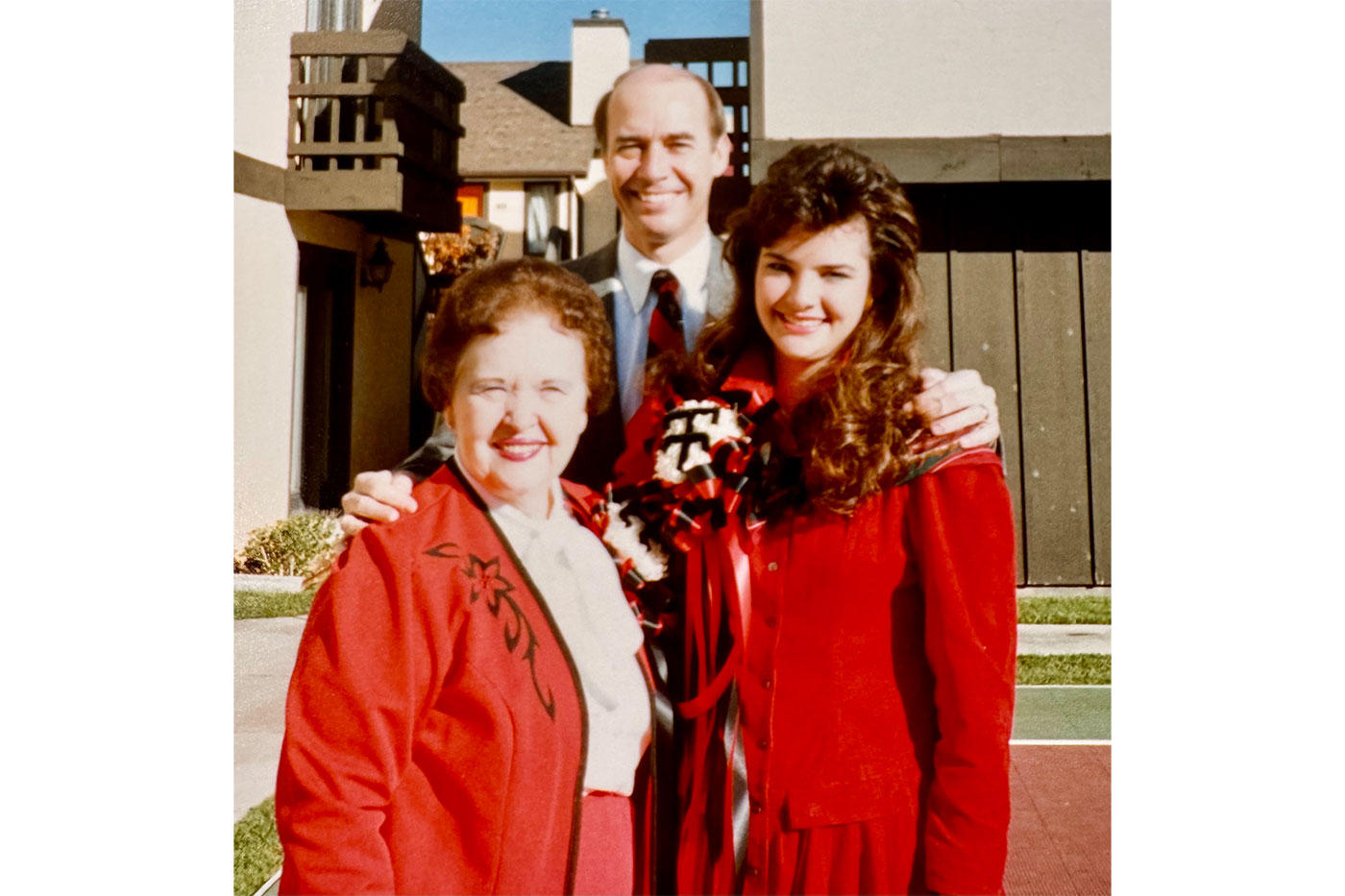
She also had the unique opportunity to learn from the same professor who taught her father.
“When my dad was getting his master’s degree, Duane Crawford was just coming on as a faculty member at Texas Tech,” she said. “So, my dad had him in the early stages of his career and I had Mr. Crawford at the very end of his career. That was pretty cool.”
Plunk was well-trained by the time she graduated with her bachelor’s in 1992 and confident enough to secure a job with Texaco E&P in West Texas for more than two years. At that point, she decided to go back to Texas Tech for a master’s degree in industrial engineering. Once she graduated in 1995, she moved with her husband to Dallas and was employed by Texas Instruments (TI) as an ergonomic engineer.
Plunk worked in this position for a year and a half until Raytheon acquired the defense sector of TI. She then became the environmental, health and safety manager for the Spring Creek, Texas facility along with U.S. Department of Defense programs in North Texas. In this role, she ensured the environmental compliance, health and safety of 1,500 employees.
“Oh, that was a lot of fun,” Plunk said of the responsibility. “The worst part about it was I had a secret clearance, but some of this work was top secret. So, when I came in to work with the employees, sometimes they had to shut down the entire line because my clearance was not high enough for me to see that technology.”
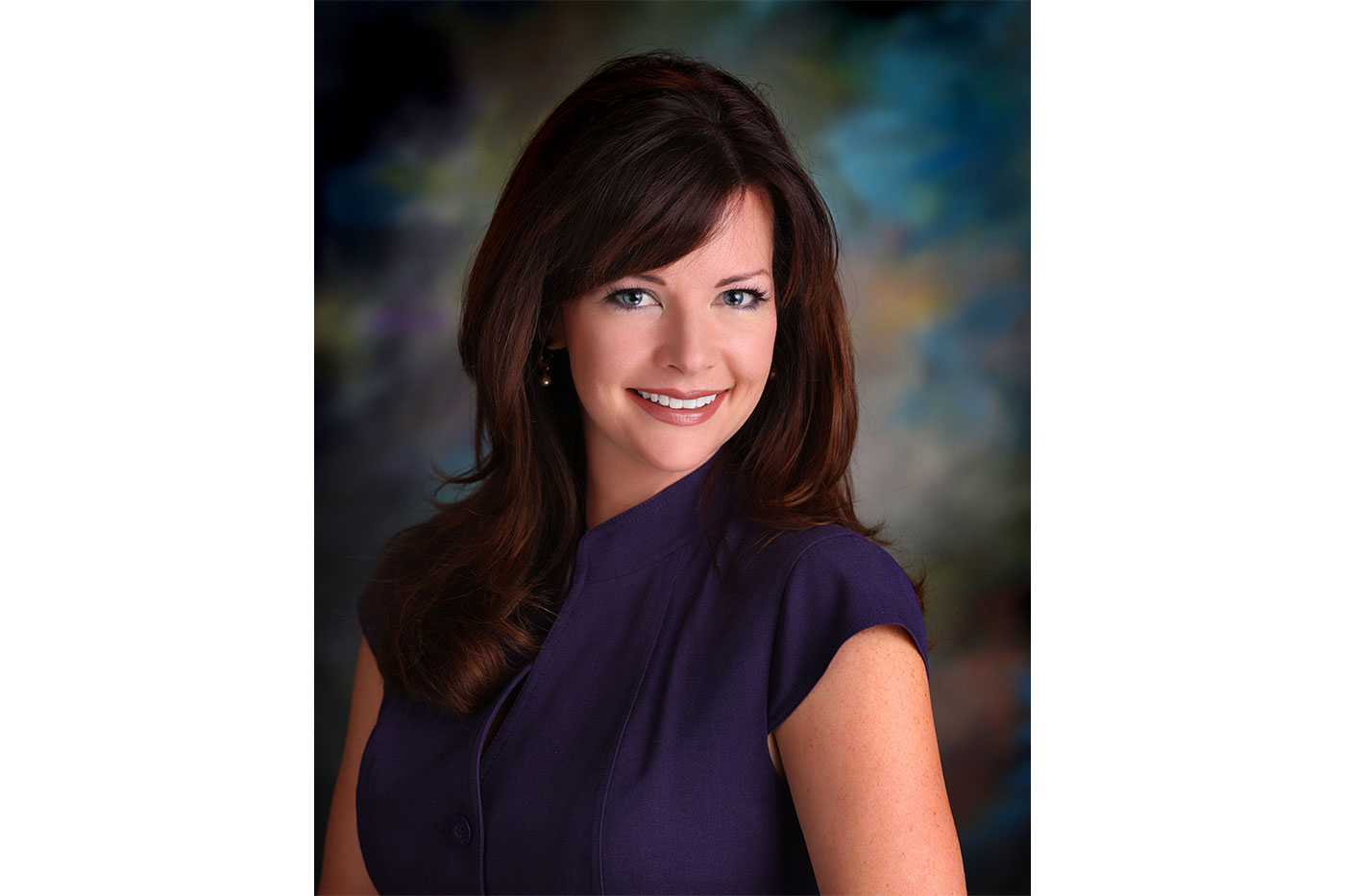
As thrilling as this job proved to be, after more than six years, Plunk became a mother and her priorities began to shift. In search of a more flexible career, she decided to join forces with an engineer she admired even more with her increased experience.
“My dad and I started a small company where we were investors in different oil and gas operations,” she said. “It was a great time in my life to get to work with him on a regular basis and talk about the business and deals.”
Plunk cherished her newfound time, which allowed her to pursue other opportunities that were important to her such as the Junior League of Collin County. Before long, she joined its exploratory committee looking into the viability of the first children’s science center in the Collin County area.
Eager to pay forward the influence her father made on her fulfilling career in petroleum engineering, Plunk set forth to share her passion for STEM.
“I’m a huge believer in if you can see it, you can be it,” she explained. “I think it’s really important to mentor the up-and-coming generations so they can understand what is involved with being an engineer.”
Planting Seeds
It took five years of strategic planning, meetings with community leaders, branding and fundraising – but the work was well worth it to Plunk. Her determination paid off in 2008, when the Sci-Tech Discovery Center opened in Frisco, Texas.
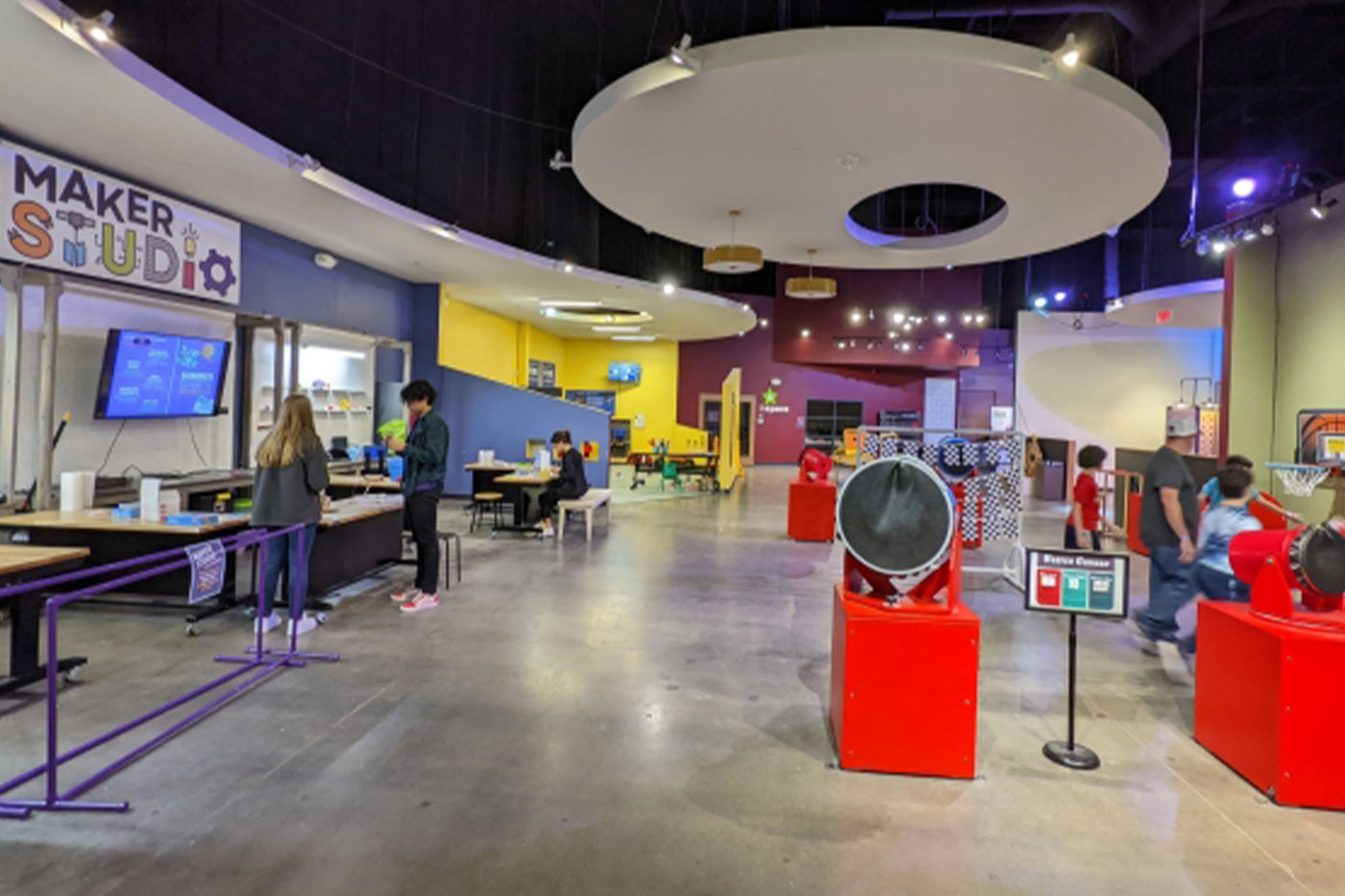
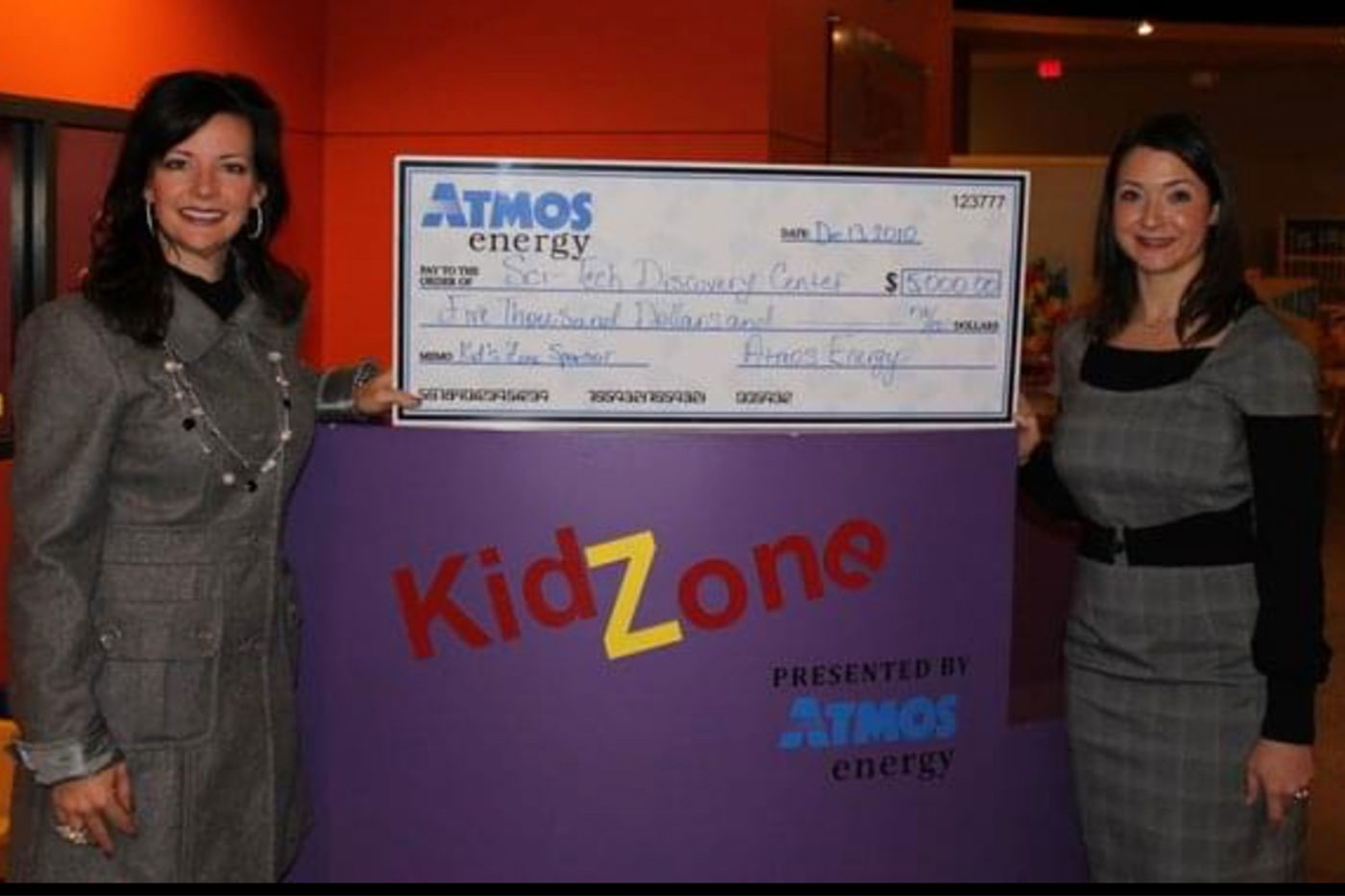
By this time, Plunk had three children who would benefit from the center’s dynamic, educational experiences that inspired visitors of all ages and backgrounds to embrace discovery and innovation through the active exploration of STEM.
“My kids grew up at the Sci-Tech Discovery Center,” she said. “They were there for summer camps, after-school events and birthday parties. It has become a real staple in our community where people can come for field trips, or for an hour at a time with their family to get hands-on STEM education.”
The 25,000-square-foot facility has offered programming year-round for the past 15 years, with the goal to double in size and become the only children’s museum in the North Texas region with a STEM emphasis. Plunk chairs the steering committee studying the feasibility of this transition.

“The Sci-Tech Discovery Center has served hundreds of thousands of kids over the years,” she said with a note of pride. “It’s really exciting to think of the impact it’s had on all of our kids growing up.”
Plunk’s reputation as an advocate for STEM education preceded her, when eight years ago she was asked to help the Girl Scouts of Northeast Texas navigate into the STEM field. Reminiscing on her own time in the organization, she accepted what she believes is a long overdue challenge to introduce girls to STEM.
“In the past 20 years, there’s been quite a few people across the nation realize there are not enough women in STEM,” she informed. “It’s definitely a deficiency we need to remedy. That’s why I’m so passionate about STEM education and mentoring young women, because they need to see what they could be in engineering.”
In October 2015, Charlyn became the Chief STEM Advisor for the Girl Scouts of Northeast Texas and their STEM Center of Excellence at Camp Whispering Cedars, which opened in South Dallas in summer 2016. This created year-round opportunities for girls ages 5-18 focused on environmental science, biomedical science, robotics, engineering and astronomy.
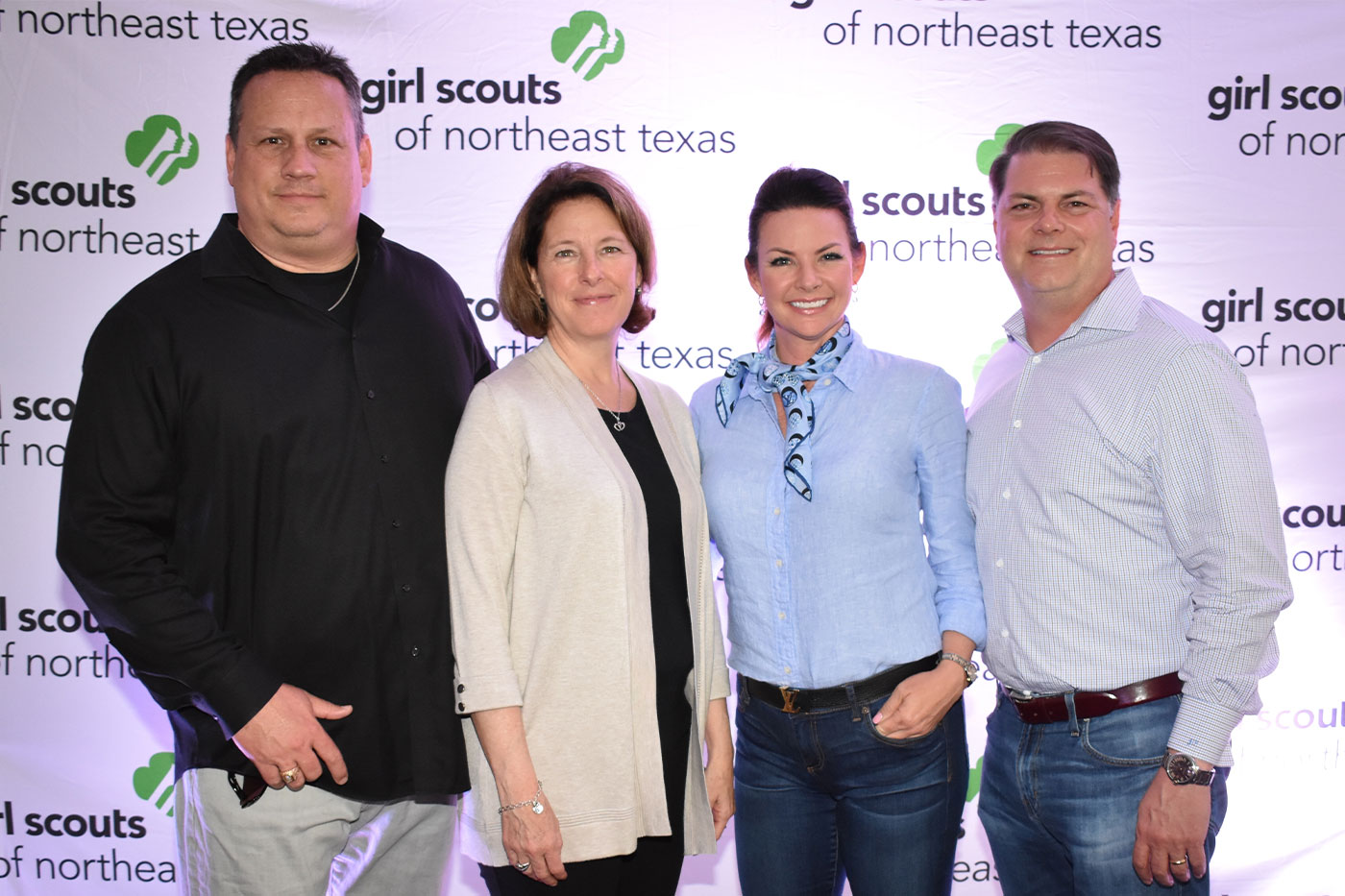
Plunk has thoroughly enjoyed forming troop programming, especially for the Camp Whispering Cedars weekly summer camps starting in June that draw Girl Scouts from across the country. In fact, the first STEM badge Girl Scouts offered was developed by the Northeast Texas council.
“We have different themes, so sometimes it’s engineering or robotics, or one week it’ll be the science of cooking or cosmetics,” she said. “It’s really exciting to see how that has blossomed over the years and set the standard for the Girl Scouts of America.”
During her time on the STEM Advisory Council, made up of community STEM experts, Plunk has led strategic planning and community impact studies to discover ways to further attract girls to the STEM field.
“We found if girls don’t have a positive environment with math and science by the time they’re in fifth or sixth grade, they will turn to something else,” she said. “Unless you’ve got a positive support network that is encouraging and creating opportunities for girls in STEM fields, they are going to get discouraged and think it’s too hard.”
This reassured Plunk that her STEM initiatives with the Sci-Tech Discovery Center and Girl Scouts were creating critical team-based learning environments that would benefit her industry one day.
“I believe women bring a different perspective to STEM fields because women’s brains are so multifaceted,” she explained. “They can think about 10 different things at one time, whereas men’s brains are usually very focused on one thing at a time.”

Plunk feels the leaders they’re building in STEM are bright, inquisitive and tech savvy. She enjoys igniting their interests and then watching them flame into passion.
While it is difficult to see the impact of these influences on a day-to-day basis, she can testify they helped her own daughters form career ambitions. They are both in college pursuing professions within STEM and STEAM (science, technology, engineering, art and mathematics).
“It’s really exciting to see the spark of where these girls were two years ago, where they are now, and where they might be in the next couple of years” she said. “We want to have a positive experience for boys also, but I think the gap is with girls right now. We’re getting a little better, but we’ve still got a long way to go.”
STEM Growth
Plunk’s initiative has also extended to her alma mater. When she visited Texas Tech a few years ago to deliver a speech to the Society of Women Engineers, she was impressed with their membership of 150 women – much larger than when she attended about 30 years prior.
She has created some goals to further this nurturing environment for women on campus as a member of the Texas Tech Industrial, Manufacturing, and Systems Engineering Academy and president for the Whitacre College of Engineering Dean’s Council.
“I’m hoping to help bring more women to the Whitacre College, because at this point, I believe 18% of our students are women,” she said. “I would love to see that up to 25-30%.”
Plunk also serves on the Texas Tech Robotics Initiative Committee, which convened April 2023 and is moving quickly to offer an interdisciplinary minor in robotics starting this fall and a masters in robotics and a Central Robotics Institute by 2029.
As for the department that trained her, her husband and father, the Plunks teamed up with Gleeson to create an endowed scholarship in their names benefiting petroleum engineering students.
To make a further difference, Plunk and Gleeson continued their generous support in 2023 when they established The Charlyn G. Plunk Outreach Raiders Scholarship Endowment, which provides scholarships to undergraduate engineering students who are specially trained to help lead STEM/STEAM outreach programs to participants of all ages in the community.
“We are passionate about being engaged and giving back not only to our university, but to our community,” Plunk said. “It’s important to love where you live, and you can’t really love where you live unless you give back and make it the environment you’re looking for.”
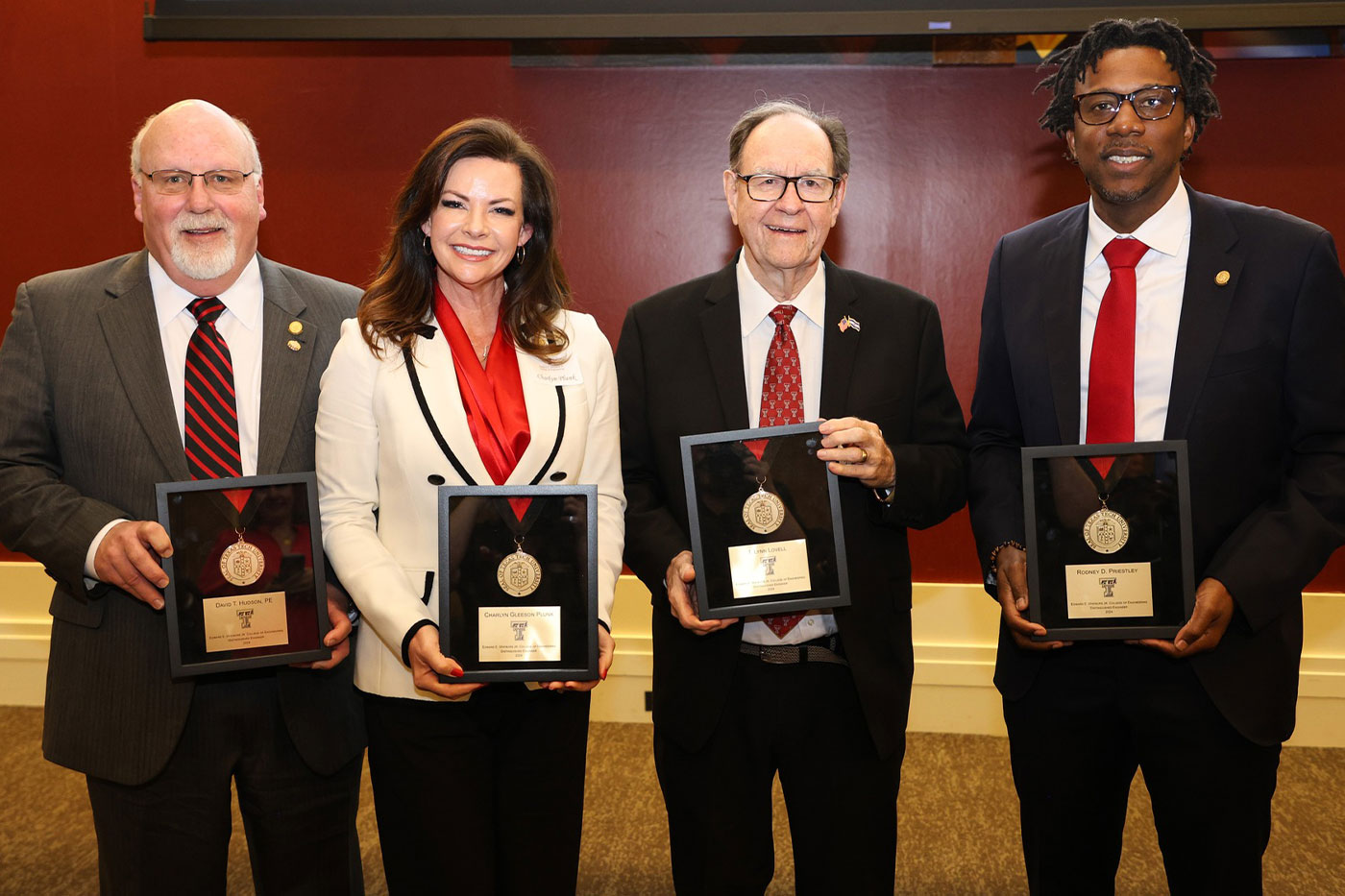
In recognition of her dedication to her university and beyond, Plunk was one of five alumni awarded the title of Distinguished Engineers this past April by Whitacre College.
Sitting beside Plunk cheering her on were the men she also discusses all things petroleum-engineering related around the lunch table on Sundays – her husband and father. And she has no intent of slowing her momentum so other women in her field and beyond can experience a critical support network.
“I’m grateful for all the opportunities I’ve been given in life, and I hope others can be as blessed as I have been,” she said. “There are so many opportunities for women in STEM right now. Many companies are looking for diversity in their workforce along with great minds that are multifunctional and multifaceted – so it’s a great time to be a woman in STEM.”

